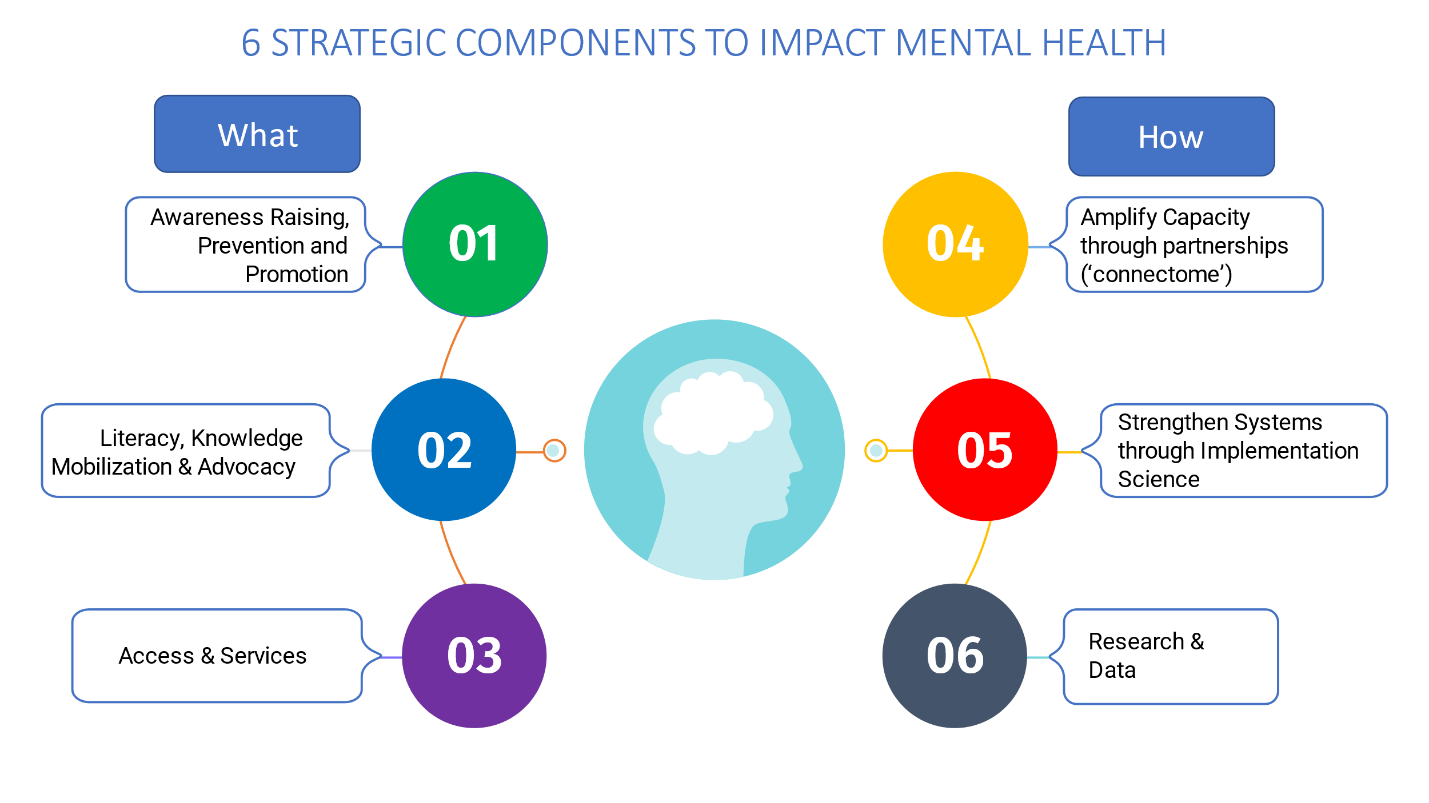AKU Integrated Mental Health Framework
AKU, under the stewardship of the Brain and Mind Institute (BMI), has adopted an Integrated Mental Health Framework that supports the strategic advancement of the University’s impact on mental health outcomes.
The promotion of mental health and well-being in all the communities AKU serves is important. Universities must promote the health and well-being of the people who learn, work, and live within them, and they must champion mental health research, teaching and learning, and service. AKU’s leadership on mental health promotes scientific discovery at the frontiers of brain and mind research while also helping prepare students, faculty, staff and graduates to build capacity to understand and address challenges across the determinants of mental health and well-being.
Social, economic, environmental, political, historical, and cultural factors influence individual and community resiliency everywhere. Mental health within communities served by AKU is particularly challenged by interwoven layers of risks associated with vulnerable populations lacking access to care or supports, conflict settings that escalate stress and trauma, systemic and deeply embedded issues of stigma, and limited resources to serve mounting needs.
The AKU Integrated Mental Health Framework sets out a path for coordinated and strategic action by the University and in concert with the entirety of the Aga Khan Development Network (AKDN) including sister agencies such as Aga Khan Health Services (AKHS) and the Aga Khan Foundation.

The framework is evidence-based and comprises the following six interconnected strategic focus areas:
Raising awareness and promoting well-being
Prevention through resilience building and self-management
Enhancing early identification and response (service and support)
Amplifying capacity by aligning institutional policies, processes, and partnerships
Strengthening systems (care and education) through implementation science
Deploying research and data for discovery and outcome assessment.
Key elements of the framework:
A large segment of people across the lifespan (depicted at the base of the pyramid) are mentally healthy. They will benefit from extremely low-cost health promotion and illness prevention investments involving the development of self-care and education. The social and economic impact at this level of stepped care is enormous.
The apex of the pyramid represents the relatively small segment of the population experiencing severe disorders requiring specialized services and facilities. Although few, these individuals require resource-intensive care. Achieving excellence is costly and requires specialized providers and facilities.
At the middle of the pyramid are populations at risk or mildly ill. Among at risk populations, early intervention is essential to minimize costs and to direct a return to wellness instead of escalation of illness. Informal community-based workers and other networks of supporters can be highly effective, low-cost caregivers.
Among populations have mild or moderate conditions, low-intensity services and interventions can be delivered by primary health care workers and community-based service organizations, still at relatively low cost.
The ultimate goals of the AKU Integrated Mental Health Framework build on this stepped-care model. The following tenets (Pi3) inform the Framework.
Promote Mental well-being, stigma reduction and resiliency for all communities served by AKU
Identify Mental health problems early and support effective, culturally sensitive interventions
Integrate Research and interventions to impact care
Innovate Novel health solutions using technology and digital approaches.
